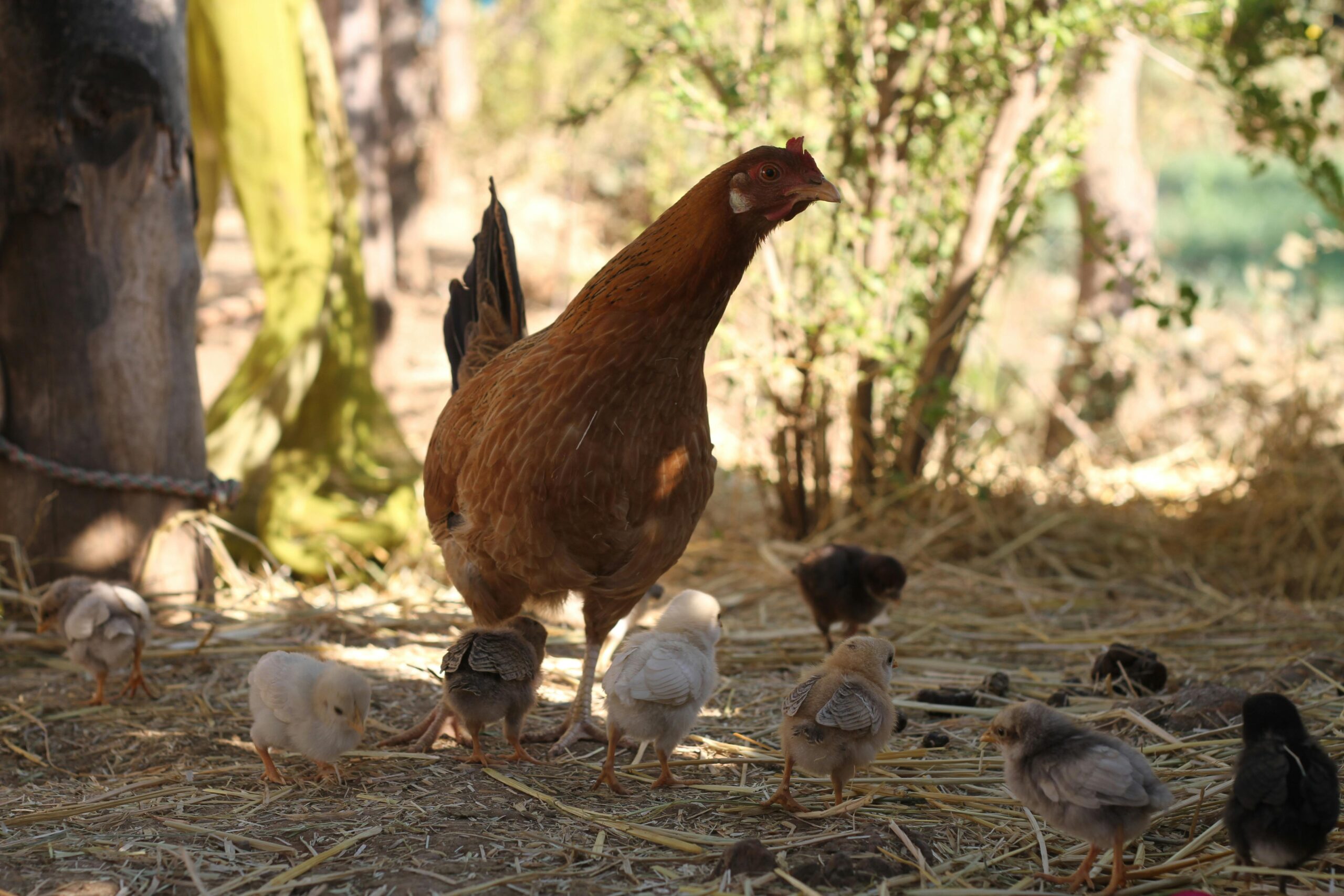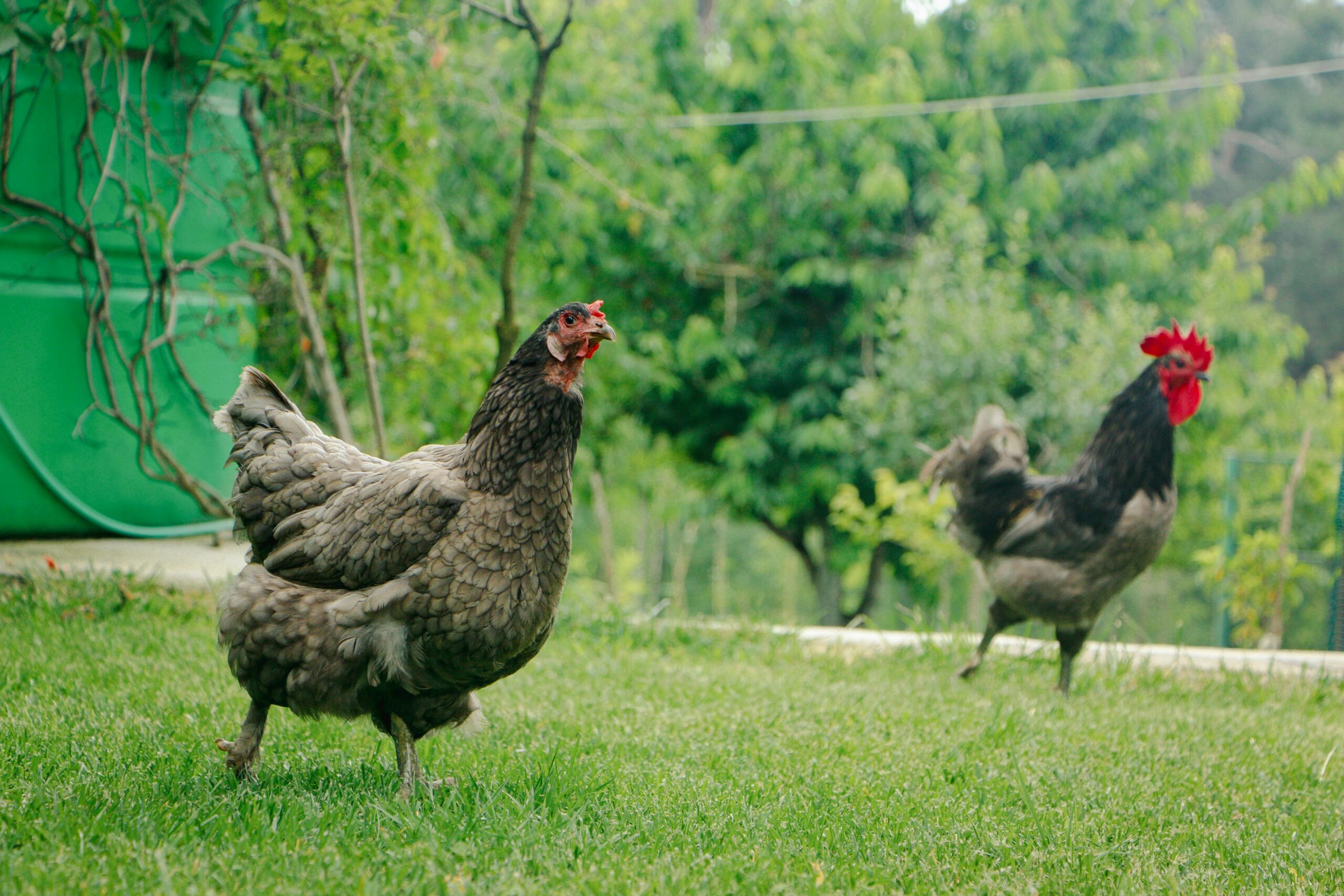So, you’re thinking of starting a poultry project? That’s awesome! But before you dive in feathers first, one big question needs an answer: which chicken breed is right for you—Broilers, Kienyeji, or Layers? Well, even though this post is not about agrovets exclusively, knowing an agrovet near me could be the first point to learning more about affordable poultry keeping and the right type of chicken to start with. Don’t worry, you’re not alone. Many new farmers start off scratching their heads at this point. Let’s break it down in a fun, clear way that even your kuku could understand.
Broilers: Fast Growth, Fast Money (But High Maintenance)
If you want quick results, broilers might be your best bet. These birds grow like they’re on a mission—ready for market in just 6 to 8 weeks. Yes, that fast! You’ll be smiling all the way to the market before you know it.
But here’s the thing—broilers are kind of like spoiled kids. They need special attention, good-quality feed, clean water, and a carefully managed environment. If you skip just one day of proper care, they sulk (and sometimes worse).
You’ll need to invest in protein-rich feed that helps them grow fast, and that’s where your trusted agrovet near me comes in. They’ll guide you on the right feeding schedule and supplements to avoid losses.
“Broilers are like the matatu business of poultry—fast, profitable, but stressful if you’re not well prepared!”
If you’ve got some capital, access to good feed, and you’re in it for short-term gains, then broilers are your birds. Just be ready to handle the pressure that comes with their high-maintenance lifestyle.
Click here to learn more about protein-rich feed
Kienyeji: The Resilient Hustlers of the Coop

Kienyeji chickens are like your rural aunties—strong, independent, and not afraid of a little hustle. These birds are tough, disease-resistant, and don’t complain much. They’ll eat kitchen leftovers, roam around your compound, and still give you decent eggs and meat.
They’re perfect for beginners who want to start small and grow with time. You won’t have to worry about expensive feeds or sophisticated housing. Kienyeji birds can survive in free-range systems and semi-intensive setups.
While their growth rate is slower compared to broilers, they are less risky and easier to manage, especially in rural or peri-urban setups.
Still, don’t ignore their health. A quick visit to an agrovet near me (or online!) will help you with vaccines and dewormers that keep them strong.
“Kienyeji birds are perfect for beginners who want a chill entry into poultry farming without daily heart attacks.”
Plus, there’s a growing market in Kenya for kienyeji eggs and meat, which are seen as healthier and tastier. You might not get rich overnight, but you’ll build a solid foundation in poultry keeping.
Layers: Egg Machines with a Routine
If you dream of collecting fresh eggs every morning like a true village boss, then layers might be your favorite. Layers are bred specifically to lay eggs, and they do it with impressive consistency—sometimes up to 300 eggs per year!
They take a bit longer to start laying—usually around 5 to 6 months—but once they get going, you’re in egg heaven. Unlike broilers, they’re here for the long haul, which means you need to think long-term in terms of feeding, housing, and disease prevention.
Layers love routine and need specific lighting hours, well-balanced feed, and some privacy—yes, really. They don’t like too much stress and are very sensitive to change. If they get upset, they can reduce egg production or stop completely.
That’s why it’s wise to build a good relationship with your agrovet near me early on. They’ll help you with proper feed plans, calcium supplements, and even egg production boosters if needed.
“Layers are the committed girlfriends of poultry—give them love and attention, and they’ll treat you right every morning!”
Just keep in mind that layers require more structure and planning, so if you’re someone who enjoys systems and routine, then layers could be your perfect match
Cost Breakdown for Feeds, Vaccines, and Housing: What to expect when starting small.
So, you’ve finally decided to get into poultry or livestock farming — karibu sana to the farmer’s club! But now the big question pops up: “How much will this cost me to start?” Don’t panic. You don’t need a sack of cash to begin small. Let’s walk through the realistic costs of feeds, vaccines, and housing, so you know what to expect and plan wisely.
1. Feeds: Your Animals’ Daily Bread (and Your Biggest Budget Item)
Feeds are to chickens and livestock what ugali is to Kenyans—you just can’t skip it. It’s also the most expensive part of farming and usually eats up about 60-70% of your total budget. But it’s also where you can make smart decisions to cut waste and boost results.
For small-scale poultry farming, especially with broilers or layers, you’ll need starter, grower, and finisher feeds depending on the age of the birds. A 50kg bag of commercial feed ranges from KES 2,800 to KES 3,500 depending on the brand and your location.
Let’s break it down:
- Broilers: A single bird may eat around 4 to 5 kg of feed before sale—costing roughly KES 300 to 400 per bird.
- Layers: These require consistent feeding daily and may need about 120g of feed per bird per day once they start laying.
- Kienyeji: Less fussy! They can supplement their diet by scavenging, so you can mix commercial and homemade feeds to cut costs.
Need guidance on the best feed for your flock? Just type “agrovet near me” on your phone, and you’ll probably find someone offering starter kits, feed bundles, or even delivery! Many online agrovets now help you compare feed options based on your breed and budget.
“Good feed makes healthy birds, and healthy birds bring happy profits.”
2. Vaccines: Small Bottles, Big Impact
Vaccines may not look like much, but they’re your secret weapon against heartbreak and losses. Diseases like Newcastle, Gumboro, Fowl Typhoid, and Marek’s are common in Kenya, especially during the rainy season. A sick flock can clear your investment faster than you can say “Kuku!”
But here’s the good news—vaccines are super affordable when you’re starting small:
- Newcastle disease vaccine (eye drop or oral): about KES 300–500 for 100 doses.
- Gumboro vaccine: similar pricing, around KES 350–600 depending on the source.
- Combined vaccines or booster shots: Available at some online agrovets for KES 700–1,200 per combo pack.
Vaccines need to be stored properly, and that’s where buying from a reliable source really matters. When in doubt, a quick search for “agrovet near me” gives you access to nearby experts who can even guide you on when and how to vaccinate based on your flock’s age and environment.
“A few hundred shillings in vaccines can save you thousands in losses—talk about tiny investment, big return!”
If you want to learn more about poultry diseases, click here to learn more
3. Housing: Keeping It Safe, Dry, and Budget-Friendly
Now let’s talk about your coop, cow shed, or goat pen. Housing doesn’t have to be fancy—it just needs to be secure, well-ventilated, and dry. Whether you’re using off-cut timber, iron sheets, old mabati, or recycled pallets, the goal is to keep your animals safe from predators, rain, and diseases.
You can easily build a basic chicken coop for 50 birds with KES 5,000 to 10,000, depending on materials and location.
Here’s a sample cost estimate for a basic setup:
- Timber and roofing sheets: KES 4,000–6,000
- Wire mesh or ventilation materials: KES 1,500
- Feeders and drinkers: KES 1,000–2,000
- Disinfectant and bedding (sawdust or straw): KES 500–1,000
For livestock like goats or dairy cows, you’ll need to spend more—maybe KES 15,000–30,000 for a simple zero-grazing unit. But again, it’s one-time, and you can build it in stages as your income grows.
Your local agrovet near me might also stock poultry and livestock housing accessories like drinkers, feeders, egg trays, and insect repellents—saving you a lot of hassle.
“Start with what you have and upgrade as you grow—animals won’t judge your carpentry skills, I promise.”
Where Online Agrovets Can Cut Costs: Starter packs, bundles, and discounts.
Farming doesn’t have to break the bank, especially when you’re just starting out. If you’re a smallholder poultry or livestock farmer looking to cut costs and save time, then online agrovets might just be your best friend. They’re not just for the big farmers anymore—they’re designed to serve you, the everyday farmer, too.
From starter kits and feed bundles to seasonal discounts and delivery deals, online agrovets are now offering more value than ever. Let’s look at exactly how they can help you save cash while building a successful farm.
1. Starter Packs: Everything You Need in One Affordable Box
You know that feeling when you start something new and don’t know what exactly to buy? Online agrovets totally get that. That’s why many of them offer starter packs for beginner farmers. These packs come with just the right amount of feeds, vaccines, vitamins, and equipment for a specific number of birds or animals.
For example, you might find a broiler starter pack for 50 chicks, which includes:
- Starter feed for 2 weeks
- Newcastle and Gumboro vaccines
- Chick drinkers and feeders
- Multivitamin sachets
The whole package might cost KES 3,000 to KES 5,000, depending on the supplier and brand. And guess what? That’s way cheaper than buying everything one by one from different places.
Even better, when you order online, you don’t waste time walking around in the hot sun asking, “Nani huuza vaccine ya Newcastle?” A simple search for agrovet near me can link you to one that offers starter packs and even home delivery!
“Starter packs take away the guesswork so you can focus on raising healthy animals, not memorizing shopping lists.”
2. Feed and Supplement Bundles: Buy More, Save More
Feeds and supplements are things you’ll always need as a farmer. But buying them in small daily amounts from your local duka is more expensive over time. Online agrovets often offer bulk bundles or combo deals that give you more value for less money.
You might find deals like:
- Buy 3 bags of grower mash, get 1 free
- Free vitamins with every 2 bags of broiler starter feed
- 10% off when you buy a full month’s supply
This kind of bundling means you can budget better, plan your feed schedules, and reduce trips to town. Plus, if you’re in a rural area or busy running your farm, many online agrovets now deliver to your gate.
Pro tip: check your preferred agrovet near me website or social media page for current bundle offers—they change often, especially around planting or holiday seasons.
“Why buy one thing at a time when you can save money buying bundles that keep you stocked up for weeks?”
3. Discounts, Loyalty Points, and Farmer Deals
Let’s talk about every farmer’s favorite word: discounts! Online agrovets love to reward returning customers with loyalty programs or surprise discounts. When you shop online or register as a customer, you might earn points you can redeem later or unlock promo codes for future purchases.
Some agrovets even send SMS alerts like:
“Dear farmer, get 15% off all poultry vaccines this week only. Tap to shop now!”
These deals may seem small at first, but over a few months, you’ll realize you’ve saved thousands of shillings. That’s money you can use to expand, add more birds, or improve your housing.
And don’t worry about being too far from Nairobi or Eldoret. Many “agrovet near me” searches will show you online stores that deliver across the country—even to rural Kisumu or Bungoma!
“The more you buy smart, the more you save. Online agrovets reward loyal farmers—so go ahead, sign up and cash in!”
Using “Agrovet Near Me” to Source Nearby Deals: Compare without leaving home
Let’s be honest—farming comes with a to-do list that’s longer than a Nairobi traffic jam. So, if you can save time and money just by typing “agrovet near me” on your phone, why wouldn’t you? Today, we’ll show you how that simple phrase can lead you to better deals, smarter choices, and less hustle. Yes, all without stepping out of your shamba!
From comparing prices and products to checking reviews and delivery options, you can now shop smarter, not harder—and it starts with one small search.
1. Skip the Hustle: Your Farm Shop Is Now Online
Gone are the days when finding vaccines or feeds meant boda-boda rides and dusty walks through the market. With the rise of online agrovets in Kenya, you can now compare prices and stock right from your mobile phone. This means no more calling ten shops or being overcharged because you’re buying in a rush.
When you search “agrovet near me,” Google shows you a list of nearby agrovets, their phone numbers, opening hours, websites, and even directions. Some even include WhatsApp numbers, so you can text to ask:
“Hi, do you have chick mash? How much?”
You don’t need to be a tech genius. If you’ve ever Googled “mpesa charges” or “chicken feed prices,” then you already know how to use search to save money.
“In just five minutes, you can know who has stock, who delivers, and who’s giving a farmer-friendly deal.”
2. Price Check Like a Pro: Why One Search Could Save You Thousands
Agrovet prices can vary a lot—even within the same town. One shop may sell a 50kg bag of broiler starter at KES 3,000, while another down the road charges KES 3,500. Same feed, different price. That’s why a quick search helps you compare before buying.
When you use “agrovet near me”, look out for agrovets that have online shops, Facebook pages, or product listings. These usually give you an idea of what’s in stock and what it costs. Some even display weekly offers like:
- “This week only: Buy 2 vaccines, get 1 vitamin free.”
- “10% discount on layers mash when you order online.”
This means you get to budget smartly and avoid surprise prices. You can even take screenshots and compare with your neighbors or farming group to see who has the best deal.
“It’s like window-shopping for your farm—only this time, your windows are on your phone!”
3. Find Trusted Sellers: Let Reviews and Ratings Be Your Guide
Let’s face it—every agrovet promises they sell ‘original’ products, but how do you know who to trust? That’s where reviews and ratings come in. When you search “agrovet near me,” many listings come with Google ratings, photos, and even customer comments.
Take time to read what other farmers are saying. Comments like:
- “Fast delivery, quality feeds!”
- “Affordable vaccines and good customer care.”
- “Avoid—sold me expired drugs.”
These honest reviews can help you choose wisely and avoid bad experiences. No need to gamble with your money—or worse, your livestock’s health. It’s better to buy from a seller with fewer items but real farmer trust.
And once you find a seller you like, save their number or follow them on Facebook to get updates on new stock and flash sales.
“When farmers share their experiences online, they’re helping you avoid mistakes and buy with confidence.”
4. Delivery Makes Farming Easier: Let the Shop Come to You
You don’t need to leave the farm to get quality feeds, vaccines, or supplements anymore. Many online agrovets now offer same-day or next-day delivery within towns or even to rural areas for a small fee. That’s especially helpful when:
- You’re too busy to leave your animals unattended
- You don’t have transport or don’t want to hire a boda
- You want to buy in bulk and have it dropped at your gate
After comparing sellers and prices using “agrovet near me,” just call or WhatsApp your chosen seller to confirm delivery. Some even send riders with change, receipts, and a smile!
Bonus tip: some online agrovets partner with mobile payment options and offer discounts for M-Pesa payments or purchases above a certain amount.
“Instead of carrying heavy bags or risking spoiled vaccines in the sun, let the agrovet come to you!” Place a call to our online agrovet today to make your enquiries and place your order




